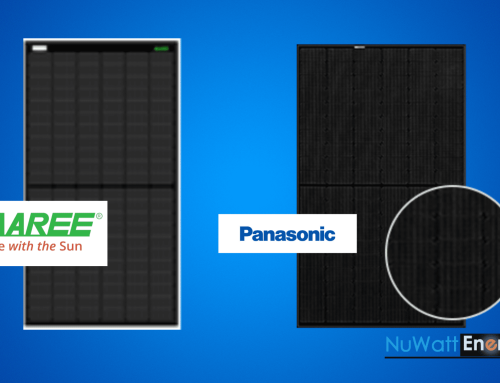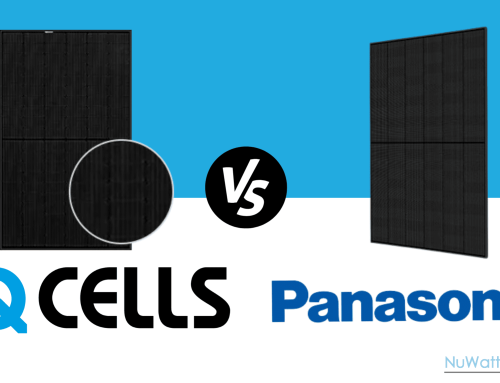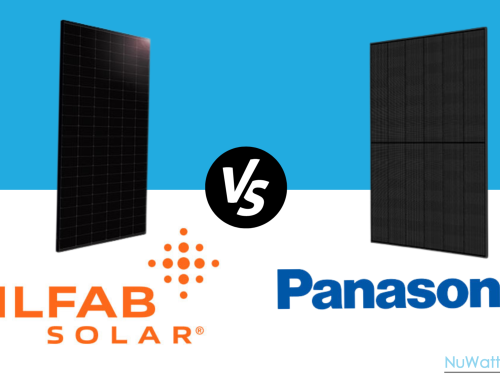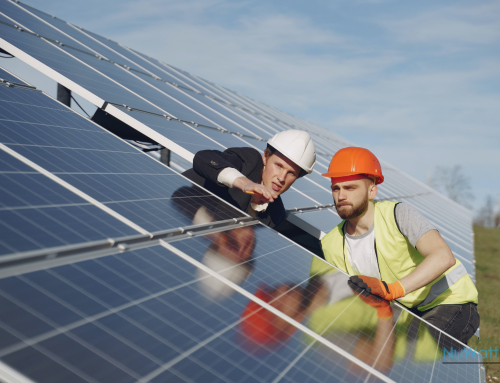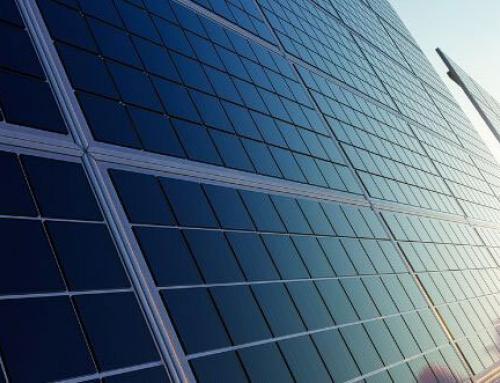Why it is Important to get Good Solar Panels?
As you embark on your solar journey, it's crucial to consider various factors, including kilowatt-hour production, monthly expenses, and overall savings. Equally important is understanding the solar panel type you're investing in and installing. Choosing the ideal solar panel from a vast array of models can be daunting, as they often appear quite similar in terms of functionality, making it difficult to distinguish between a top-notch and a mediocre product. The true performance of a panel may only become apparent years down the line, revealing any potential quality issues. To avoid investing in an affordable yet underperforming panel, ensure you select solar panels with impressive specifications and a solid, reliable warranty.
Panasonic
As one of the largest global manufacturers, Panasonic is a popular and dependable choice for homeowners seeking a reputable company with extensive market experience. It's crucial to select a company that can support you throughout your solar panels' lifespan. Panasonic's latest model, the EVPV 400 Watt panel, promises a 92% power output after 25 years, outperforming traditional solar panel warranties from established companies by 15%. Utilizing Heterojunction Cell Technology (HJT), these panels reduce electron loss, optimize conversion efficiency, and generate higher power output compared to conventional panels. Panasonic panels have received exceptional ratings and reviews in the United States, making them a top choice for solar energy consumers.
The models that we currently offer from Panasonics are EVPV 360PK, 370PK, EVPV 400HK, and EVPV 410HK.

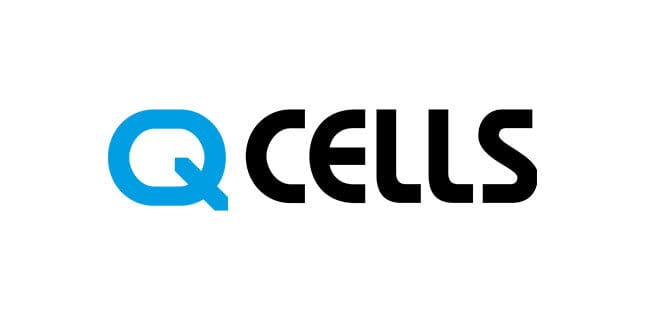
QCells
In 2012, South Korean company Hanwha acquired the German solar manufacturer Q Cell, a globally renowned photovoltaic producer known for its cost-effective panels. Hanwha provides a comprehensive selection of photovoltaic products, applications, and solutions, making their panels an attractive option for many homeowners without the premium price tag. Their most popular panel, the QCell Q.Peak Duo 400 Watt, has gained considerable attention. To cater to the US market, Hanwha established a manufacturing facility in Atlanta, Georgia in 2019, further solidifying its presence in the solar industry.
The models that we offer from Hanwha Q Cells are Q.PEAK DUO G10 395, Q.PEAK DUO G10 400, and Q.PEAK DUO G10 405.
Comparing solar panels: EVPV400HK vs Q.PEAK 400 DUO BLK
| BRAND | PANASONIC | Q CELLS |
|---|---|---|
| MODEL | EVPV400HK | Q.PEAK DUO BLK ML-G10+ 400 |
| TYPE | Mono-crystalline Silicon | Mono-crystalline Silicon |
| WATTAGE (W) | 400 | 400 |
| MODULE EFFICIENCY | 21.6 % |
20.4 % |
| POWER DERATING | 0.25 % |
0.50 % |
| POWER WARRANTY TYPE | LINEAR | LINEAR |
| PRODUCT WARRANTY | 25 YEARS AllGuard |
25 YEARS |
| OUTPUT WARRANTY | 25 YEARS |
25 YEARS |
| DIMENSIONS - INCH | 71.69 x 41.50 | 73.97 x 41.14 |
| COMPANY ESTABLISHED YR | 1918 |
1999* |
Panasonic EVPV 400H
EVPV400HK uses Half-cut HeteroJunction Technology (HJT) and uses N-type cells. The use of Half-cut cells with HJT minimizes electron loss, maximizes conversion efficiency, and produces considerably higher power output over conventional panels. N-type cells result in minimal Light Induced Degradation (LID) and Potential Induced Degradation (PID), which supports reliability and longevity. Backed by a company that has pioneered solar technology for over 45 years, Panasonic EverVolt solar panels are backed by innovation, experience, and a trusted brand name. The AllGuard Warranty that Panasonic offers is another proof that Panasonic stands behind its products.
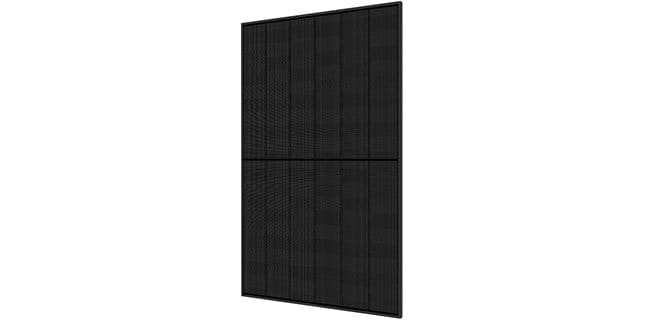
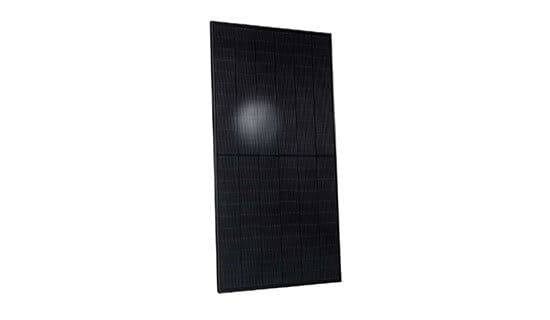
Q CELLS Q.PEAK DUO ML-G10+ 400
Peak-Duo technology separates the modules into six sections. This is very unique in the industry, as most solar panels have three diodes/sections. Before diodes, a small portion of shading from a tree or snow could knock out an entire solar panel. In recent years, panels have had three diodes, meaning only a third of the panel would lose power. The panel’s design is all-black, with its silver bus bar lines that are readily apparent. The 400-watt panels have a good power output. Q Cells are an economic option compared to Panasonics.
The Bottom Line
Both panels promise to give you an initial output of 400 Watts. However, we notice some differences in their performance and other key factors. Below is a summary of the comparison of differences.
- Panasonic EVPV400HK has half the annual degradation of QCell Q.Peak 400. Solar panels’ performance degrades over time, which means your system will produce less energy as it ages. However, a solar system made from Panasonic solar panels will produce more energy over the next 25 years than Hanwha QCell. As the energy cost goes up, this difference will become more pronounced financially over time.
- Panasonic EVPV400HK has 21.6% efficiency, that’s 1.2% higher than that of QCell Q.Peak 400. This means you can get more energy from your roof for a given area.
- QCell panels manufacturer was established in 1999 and with a focus on the solar business compared to Panasonic which was established in 1918 and is more established and more diversified. This is an important factor in projecting whether a company will outlive the promised warranty.
- QCell offers a 25-yr warranty covering their own solar panels. Panasonic offers an AllGuard Warranty that covers all major components such as the panels, the inverters, and the mounting system for 25 years. NuWatt Energy is one of the few Elite Installer companies that offer this type of comprehensive warranty.

